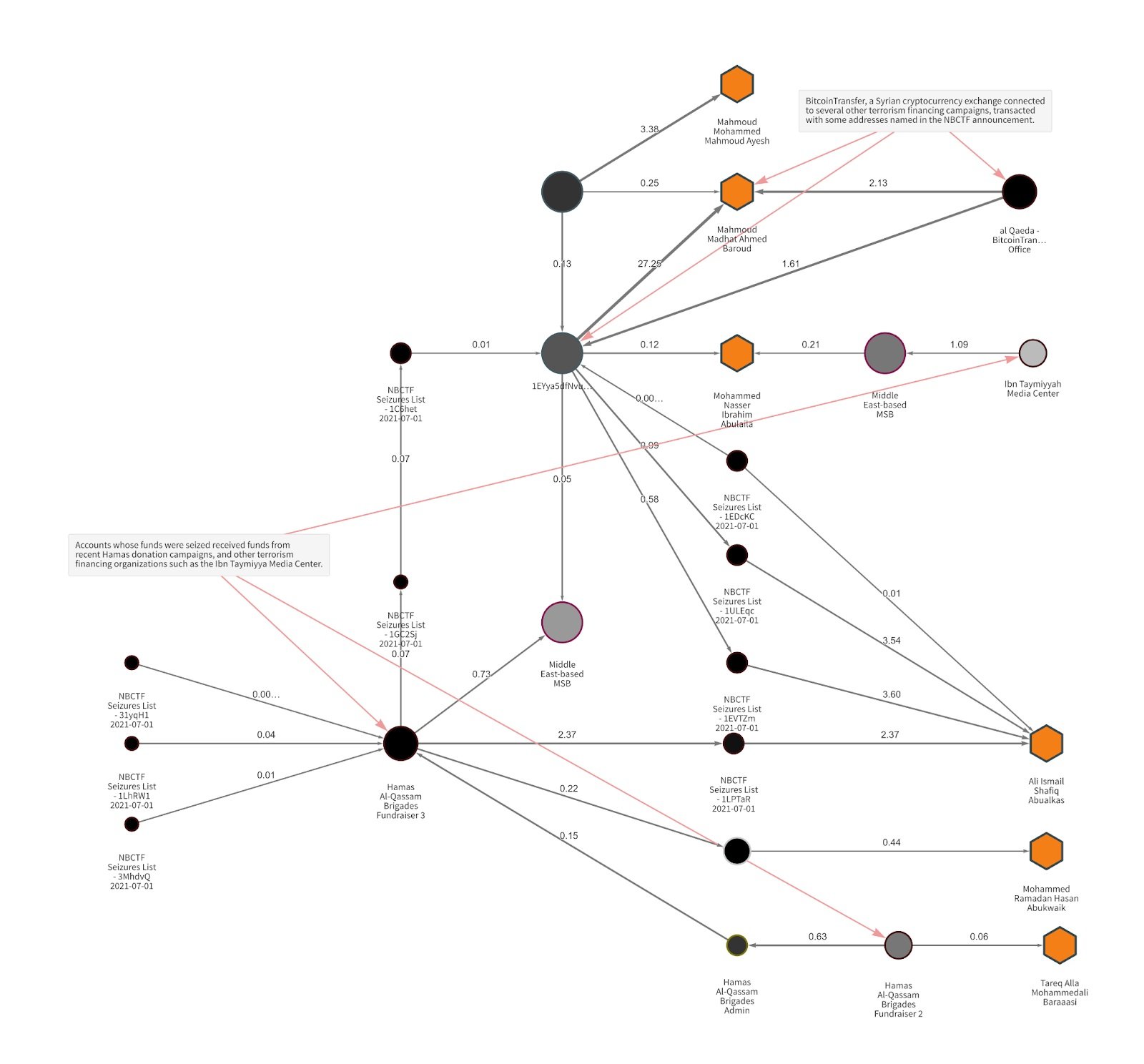
Israel’s Defense Minister Benny Gantz has ordered the seizure of cryptocurrency funds raised by the Palestinian Islamist movement Hamas. His department has reportedly started taking control over digital wallets used by the terrorist group to collect crypto donations from abroad.
Defense Ministry of Israel Targets Crypto Addresses Used by Hamas
Minister Gantz approved the seizure of the wallets on June 30, the Times of Israel reported on Friday. The National Bureau for Counter Terror Financing (NBCTF) published a list of targeted addresses and wallet details used by Hamas to raise funds in bitcoin (BTC) and other cryptocurrencies. They were identified during a joint operation with the Ministry of Defense.

The publication adds that the stockpiles of cryptocurrency were being managed from the Gaza Strip, which is under the control of Hamas. The wallets were employed by the Palestinian organization in its efforts to collect money from foreign sources following the 11-day conflict with Israel in May. The seizure has affected the Al Qassam Brigades, Hamas’s military wing.
According to a blog post by blockchain forensics firm Chainalysis, the investigation focused largely on analysis of open-source intelligence such as social media posts and blockchain data. The blockchain analysis reveals the movement of donation funds to exchanges. Chainalysis published a graph showing bitcoin transactions carried out by addresses listed by the NBCTF, many of which have been attributed to individuals involved in donation campaigns.

“The orange hexagons represent deposit addresses hosted by a large, mainstream cryptocurrency exchange and controlled by individuals named in the NBCTF announcement,” explains Chainalysis. “On the graph, we see how funds moved to those exchange addresses from Hamas donation addresses, often passing first through intermediary wallets, high-risk cryptocurrency exchanges, and money services businesses (MSBs),” the company detailed.
According to the report, two addresses named in the announcement received funds from addresses associated with the Idlib office of Bitcoin Transfer, a Syrian cryptocurrency exchange connected to terrorism financing cases. A third address received funds from a Middle East-based MSB that had previously received funds from the Ibn Taymiyya Media Center (ITMC), another organization linked to terrorism financing.
Besides BTC, the ministry intercepted payments in ETH, XRP, USDT, and DOGE, the Times of Israel claims. The crypto cash has been seized in accordance with Israel’s Counter-Terrorism Law from 2016. In a statement released by the defense department, Benny Gantz was quoted as saying:
The intelligence, technological and legal tools that enable us to get our hands on terrorists’ money around the world constitute an operational breakthrough.
Seizure of Hamas’ Funds Proves Bitcoin Is ‘Safe’ Currency
According to Noa Mashiah, CEO of the Israeli Bitcoin Association, “the seizure and forfeiture of Hamas’s donations proves that Bitcoin is a safe currency.” He elaborated that “criminals who make use of this financial system will find out the hard way that the open transaction log, the blockchain, will expose them and allow law enforcement agencies to act against them.”
The executive said that the news of the confiscation marks “a significant improvement over the anti-money laundering ban and also over international bank accounts hidden behind a bank secrecy wall.” He insisted that the operation proves regulators in Israel should “adopt and use” bitcoin “as it makes it possible to expose the bad and do good with the good.”
“Once you go beyond the boundaries of the blockchain to the worlds of trading platforms, you immediately lose anonymity and then, as in the present case, states and law enforcement agencies are able to locate and freeze the currencies of criminal and terrorist organizations,” added Omri Segev Moyal, CEO of cybersecurity firm Profero. He also noted that “when the network is completely exposed, you can very accurately track the trajectory of the coins and locate their final destination.”
Hamas called on its supporters to send bitcoin in 2019, when the Islamist movement needed the money to deal with its financial problems. A few months later, the terrorist group established an experimental program to collect money via an elaborate system designed to facilitate international cryptocurrency donations.
What do you think about Israel’s seizure of cryptocurrency funds raised by Hamas? Share your thoughts on the subject in the comments section below.
Comments
Post a Comment